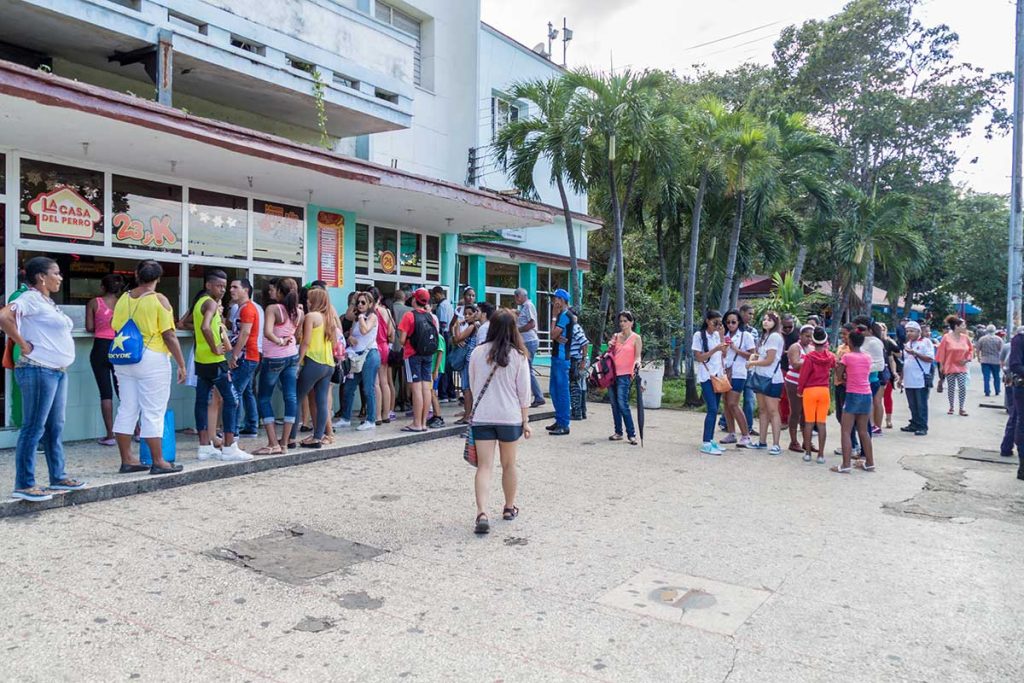Have you ever stopped to think about when and how you learnt to queue? Being raised in Australia, it would seem obvious to stand behind the person being served to wait for your turn. If you did this in Cuba, for example, your turn might never come.
How would you know to do this unless you had learnt it from within a Cuban cultural context? The same is true for queuing in the UK. Unless you have learnt it, you wouldn’t know how important it is in British culture to form an orderly and polite line, and how socially inappropriate it is to jump the queue.

Cuban culture of queuing.
Queuing, like so many behaviours in everyday life, is cultural. By cultural, we mean the learnt values, beliefs, behaviours and expectations of our particular group (read: team, organisation, nation…). If you grew up in one cultural setting, it’s possible that you acquired different practices, norms and beliefs to those who grew up in a different cultural context. Even for something as basic (and deceptively ‘universal’) as queuing.
We all acquire culture, often subconsciously, through a constant and lifelong process of learning called enculturation. We all have a unique journey that is shaped by our individual surroundings. So why do we find it so hard to understand that others’ behaviours, expectations and beliefs may be different from our own?
Have a think, how many of your day-to-day behaviours have been acquired culturally? How we communicate, deliver feedback and manage conflict is often a result of our culture and may be approached differently depending on our cultural upbringing. Queuing is just one example of cultures doing things differently, but what if you can’t see the cultural difference? Does it make it harder to recognise it as cultural, and not just a personal attempt to ruin your day?
Next time you are challenged by the way someone provides you with feedback (or not) or how you’re addressed in a meeting (if at all), stop and think, maybe this is cultural. Maybe these behaviours are beyond our control and that, in this multicultural world, we all need to learn to adapt to different working styles a little better.
Kate Gilkison is an intercultural facilitator at International Consultants Centre (ICC). ICC offer a range of programs aimed at developing cultural intelligence and increasing understanding across cultures. If you’d like to know more about our cultural training programs, please get in contact.




